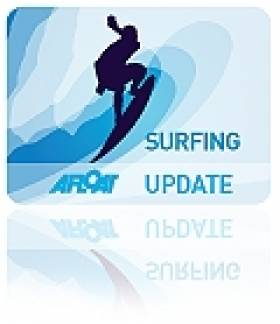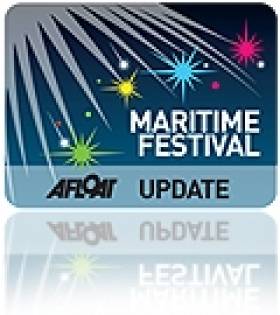Displaying items by tag: Festivals
Shore Shots Surf Film Fest Returns Next Month
#Surfing - Following last year's successful inaugural event, the Shore Shots Irish Surf Film Festival is returning in 2014 to the appropriately named Light House Cinema in Dublin's Smithfield on 5-6 April.
After one of the best winters on record for Irish surfing, surfers from across the island will be gathering for two days in the capital to check out the latest waveriding adventures as seen through the lens of filmmakers and photographers.
Among the line-up of hotly anticipated surf edits from the country’s best surfers and film-makers, photography and video from around the globe will be screenings of Uncharted Waters, a profile of 1960s Aussie surfing legend Wayne Lynch, and The Old, The Young and The Sea, a road movie following Europe's premier surfing route from France to Portugal.
And a weekend celebrating Ireland's second ever surfing themed film festival wouldn't be complete without the now infamous Shore Shots Afterparty, hosted across Smithfield Square at the Generator Hostel.
For more on the festival and how to book tickets for screenings and the afterparty, visit the Shore Shots website HERE.
New City Festival To Follow 94th Liffey Swim
#Liffey - Dublin Lord Mayor Oisín Quinn and Dublin City Council have announced details of the inaugural Liffey Living Festival - coinciding with the 94th edition of the Liffey Swim on Saturday 24 August.
Following the swim, Grand Canal Dock will host an afternoon and evening of free, family-friendly activities with street performers, giant-sized street games, live music with Dublin band Ships, special floating open-air cinema showing water themed movies.
The Liffey Swim race itself will commence at 12.30pm with the Lord Mayor firing the starting gun for the men’s race, while the ladies’ race commences at 1.30pm.
Speaking at today’s announcement, Lord Mayor Quinn commented: “I am delighted that we are staging the inaugural Liffey Living Festival. Dublin City Council has introduced this new element to the Liffey Swim as a way for people to continue to enjoy the vibrant waterways we have on our doorstep in Dublin City.
"We hope the introduction of the Liffey Living Festival as part of the Liffey Swim will continue to grow year on year and encourage people to come and enjoy all that the River Liffey and surrounding area has to offer.”
The post-race festivities be staged in Grand Canal Dock from 3pm till 11pm - and admission is free.
For more details on the Liffey Living Festival, visit www.dublin.ie. And see www.leinsteropensea.ie for more on the Liffey Swim and how to take part in that or other Leinster Open Sea races.






























































